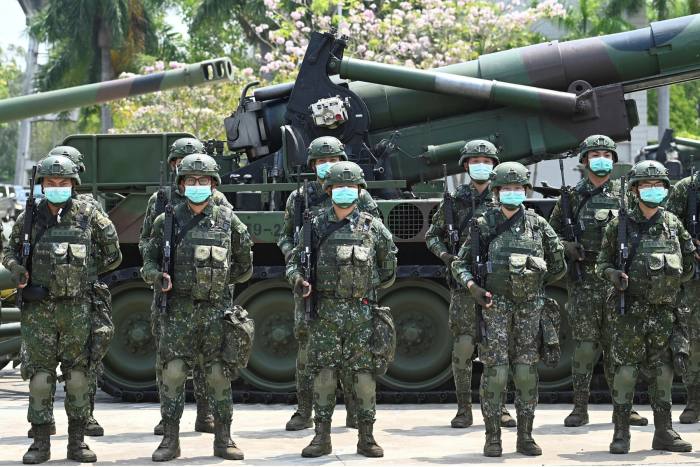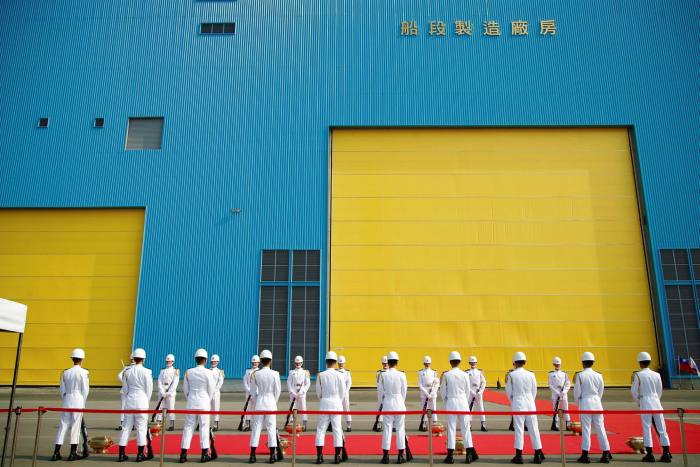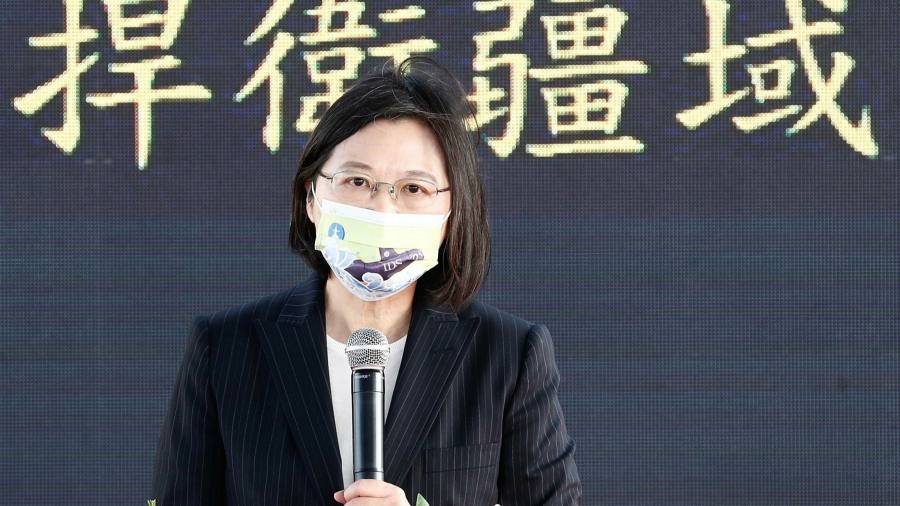Taiwan’s president will kick off a campaign to woo the incoming Biden administration on Thursday as Taipei fights to preserve the strongest support it has enjoyed from its unofficial protector in more than 40 years.
In remarks to be delivered virtually to three US think-tanks over the coming week, Tsai Ing-wen will call for Washington to continue working with Taipei in weaning global supply chains away from China and countering Beijing’s threats to regional security, according to two of her aides.
Ms Tsai’s appeal is aimed at bolstering public support in the US as president-elect Joe Biden’s team prepares to reassess fractious relations with China.
“We are about to get a China policy debate in the US. And we need Taiwan to make its voice heard in this debate,” said Lo Chih-cheng, a lawmaker from Taiwan’s ruling Democratic Progressive party and head of the legislature’s US caucus.
The Taiwanese public is worried that Washington’s strong support for Taipei is at stake. According to domestic and international polls, Taiwan would have preferred Donald Trump to have won a second term — the only nation in Asia to record such a preference.
The backdrop for those concerns is clear. The Obama administration, in which important members of Mr Biden’s foreign policy and national security team helped shape Washington’s stance towards China, tried to prevent ties with Taiwan from interfering with relations with Beijing.
This meant that arms sales to Taipei were often delayed and mutual visits were scarce.
Antony Blinken, a former deputy national security adviser under Barack Obama who will serve as Mr Biden’s secretary of state, described Taiwan in a July interview with Bloomberg as “a success story in terms of how the US and China have handled it”. Those comments stoked fears in Taipei that a Biden administration would again subordinate Taiwan to Washington’s relationship with Beijing.
Taiwanese policymakers argue that attitudes towards China have soured in the intervening years among Republicans and Democrats, as well as the American public, making the new administration unlikely to switch back to an engagement strategy with Beijing.
Both Mr Blinken and Jake Sullivan, Mr Biden’s pick for national security adviser and former deputy chief of staff to Hillary Clinton as secretary of state, have also made hawkish remarks regarding China over the past year.
Although Biden officials have backed the Trump administration’s definition of China as a strategic competitor, they have also spoken about the need for co-operation with Beijing in certain areas and to avoid confrontation from spinning out of control.
Taipei is wary that Beijing will exploit that mindset to press for a reduction in US support for Taiwan.


Ms Tsai will address the American Legislative Exchange Council, a state legislators’ organisation, on Thursday, the National Democratic Institute, loosely affiliated with the Democratic party, on Tuesday and the Hudson Institute, a conservative think-tank, on Wednesday.
“She will remind her audience that we share the values of freedom and democracy. She will also state that as we continue to face the challenge of the pandemic, co-operation is more important than ever,” said one of the aides.
People briefed on her speech said the Taiwanese president would mention the role played by Taiwan Semiconductor Manufacturing Co, the world’s largest contract chipmaker, in supply chain security with its plan for a new chip factory in the US.
She is also expected to highlight China’s military threats and economic coercion of its neighbours, including Taiwan.
China claims democratic Taiwan as part of its territory and threatens to invade if Taipei resists unification indefinitely.
Under Mr Trump, US ties with Taiwan reached their strongest point since Washington switched diplomatic recognition from Taipei to Beijing in 1979. Senior US officials publicly praising Taiwan as a partner in shared values and a force for good while cabin et ministers visited the nation.
Beijing reacted with menacing language, frequent war games around Taiwan and military incursions into its air defence buffer zone.
Robert Sutter, an international relations professor at George Washington University, said that while it would be difficult for Mr Biden to ease tensions with China, that did not mean a Biden administration was likely to advance relations with Taiwan.
“You don’t want to upset, or amplify any more than it’s already been upset,” he said of US-China relations, indicating that a Biden administration might well slide back to Mr Obama’s “mainstream” approach to Taiwan policy.
To avoid that, Taiwan wants the debate to be as public as possible. Taipei is lobbying US lawmakers to make sure they ask Biden officials during confirmation hearings to endorse a continuation of co-operation processes with Taiwan.
These include a new bilateral economic dialogue centred on supply chain restructuring, an initiative for joint infrastructure financing in third countries to rival China’s Belt and Road Initiative and the swift review and approval of Taiwanese arms procurement requests.
“Under Mr Trump, Taiwan has become an asset, a piece of leverage for the US,” said Mr Lo. “The most important thing is that we do not slip back to the curse of Taiwan being treated as a liability in US-China relations.”

